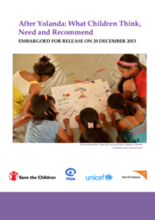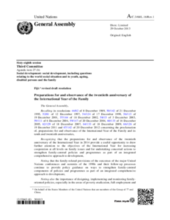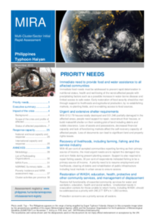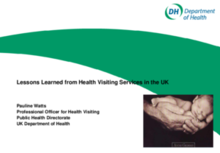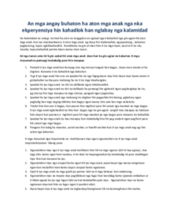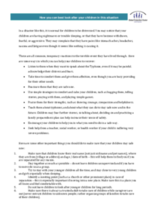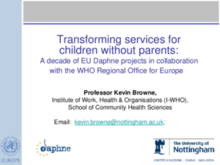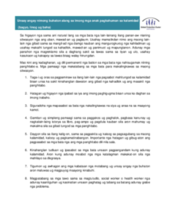Displaying 371 - 380 of 526
On 14th December, Save the Children, Plan, World Vision, working with UNICEF, organized consultations with 124 children and young people in Capiz, Cebu, Iloilo, Leyte and East and West Samar to listen to their views about the humanitarian situation six weeks after the Typhoon, find out what their priorities are and ask for suggestions to improve the response.
The United Nations General Assembly adopted on the 18th December 2013 a resolution on Preparations for and observance of the twentieth anniversary of the International Year of the Family.
The Open Society produced a short film discussing the importance and benefits of early childhood intervention in enhancing development opportunities for children.
This important study on foster care practices in India provides important insight into the history, approaches, challenges and opportunities facing the development of foster care services in the country, presenting a picture of foster care practices across nine Indian states.
To better understand the impact of Typhoon Haiyan on affected population, more than 40 agencies conducted a multi-cluster initial rapid assessment (MIRA) in 9 provinces covering 92 municipalities and 283 barangays. The (MIRA) confirmed that the impacts of Typhoon Haiyan follow a relatively clear geographical pattern.
This presentation to the 2012 Sofia Conference by Pauline Watts, Professional Officer for Health Visiting, Public Health Directorate, United Kingdom Department of Health, introduces key lessons learned in regards to preventing child abandonment by looking into intervention and support services available to children and families in the United Kingdom.
Key Messages for Caregivers in a Sudden Onset developed by the Global Child Protection Cluster in response to Typhoon Haiyan (Yolanda) in the Philippines
Key Messages for Caregivers in a Sudden Onset developed by the Global Child Protection Cluster in response to Typhoon Haiyan (Yolanda) in the Philippines
This presentation to the 2012 Sofia Conference by Kevin Browne, Institute of Work, Health, and Organizations (I-WHO), School of Community Health Services at the University of Nottingham, introduces the collective findings of his research studies on the harmful effects of institutionalization of young children and major causes of child abandonment in Europe and prevention methods.
Key Messages for Caregivers in a Sudden Onset developed by the Global Child Protection Cluster in response to Typhoon Haiyan (Yolanda) in the Philippines (Cebuano)

